
Emergency contraception is a medicaltreatment women usually opt for once they have practiced unprotectedsex, not wanting to end up pregnant. The pregnancy, after takingthese medications is prevented either by stopping or delayingovulation or by preventing the sperm to reach the egg and fertilizeit.
Keep in mind that this form ofcontraception is considered adequate for rare, short-term usagesonly. There are different medications and contraceptive methods whichare suitable for preventing pregnancy and controlling menstrualcycles in the long run.
Guide for Emergency Contraception
As far as the most common methods ofemergency contraception are concerned, these are the morning-afterpill, also referred to as the emergency contraceptive pill and theintrauterine device, also called the copper IUD.
These forms of contraception preventpregnancy once other methods have failed to do so and in situationswhere unprotected sex has taken place. Basically, the sooner you optfor any of the two types of emergency contraception after the sexualintercourse, the more effective in preventing the pregnancy will theselected method be.
Speaking of emergency contraceptivepills, Levonelle or ellaOne are the most common brands available.These can be obtained from contraception clinics, Brook centers,sexual health clinics of many types, NHS walk-in centers or someminor injury units of this organization, most pharmacies and in somehospital departments.
On the other hand, if you are olderthan 16, you can purchase emergency contraception in almost allpharmacies. Here, you will need to spend about 25 pounds on thesemedications, even though the prices can vary.
If Levonelle is your choice, it is bestto be taken within 72 hours after the sexual intercourse, preferablywithing the first 12 ones. This medication can be taken in asingle-pill form, delaying the release of your egg, preventingpregnancy this way.
If ellaOne is your choice, if you havea prescription for it, this emergency contraceptive pill comes freeof charge. Yet, it is only recommended for women older than 18, sincethis age has been confirmed safe through various clinical trialscarried out for this medication. This pill can be taken withing 5days after the intercourse. Nevertheless, it is best to be taken assoon as possible.
Finally, a more invasive method ofpreventing pregnancy from taken place in cases of emergency, bearingin mind that none of the above methods offers 100% protection andprevention, is having an intrauterine device installed in your body.This copper device damages both the sperm and the age, rendering themincapable of triggering pregnancy. Again, five days after theunprotected sex are the limit for opting for this method, if youdesire it to be effective. Once installed, you can either have itremoved by your doctor once the ovulation is over, or continue usingit as your contraceptive method of choice.
Fertility and Emergency Contraception
Not many women opt for the abovementioned methods of emergency contraception. Yet, the main reasonsbehind such a scenario is not the high level of failures or thehealth dangers emergency contraception poses. Rather, women stilllack the necessary education and knowledge about fertility per se andthe effects of both the IUDs and the emergency contraceptive pills.
The media is to blame for thissituation, since by publishing articles and multimedia claiming that,besides the side-effects of emergency contraception like nausea,vomiting, heavy bleeding and cramps, emergency contraception can leadto infertility or even development of certain forms of cancer, it hada strong influence on the choice of women who opt for abortionwithout even taking emergency contraception into consideration.
Combining this with theInternet-related media through which people obtain most of theirknowledge and information nowadays, this form of sensationalism anddisinformation has kept women away from the highly effective and morethan advisable methods of emergency contraception.
The World Health Organization andcountless other organizations of this type have proven that, whentaken adequately and according to the instructions, emergencycontraception pills cannot trigger infertility. Rather, they caneither prevent ovulation or stop the sperm on it way to the eggthrough some other methods. However, once the ovulation cycle isover, all women who used this form of contraception become perfectlyfertile again.
Therefore, rest assured that, whentaken withing 24 hours after the unprotected sex, most emergencycontraceptive pills are about 95% effective. As the days go by, theeffectiveness of these pills decreases to 85% two days after theunprotected intercourse and 58% three days after the intercourse.Thus, for maximum effectiveness react timely or use the intrauterinedevice which is known to be effective in about 99.9% of cases, wheninstalled within 5 days after the incident.
To sum up, fertile days or not,emergency contraception can prevent unwanted pregnancy when takenwithing a reasonable time after the sexual intercourse takes place.Nevertheless, keep in mind that this form of contraception is notconsidered suitable for long-term use.



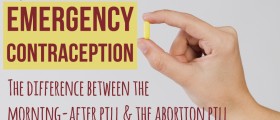

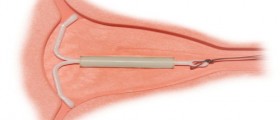

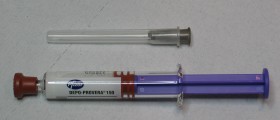



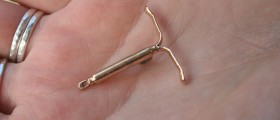
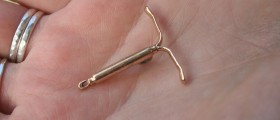




Your thoughts on this
Loading...